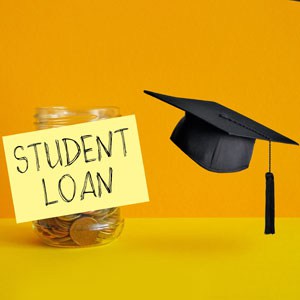
What Does Bankruptcy Mean For Student Loan Debts In Maryland?
If you’re one of the millions of Americans burdened by student loans, you know how stressful managing those payments can be. When life throws more financial challenges your way—like unexpected debts or job loss—it can feel overwhelming, leading you to consider bankruptcy as a potential solution. However, when it comes to student loans, the situation is more complex. This guide walks you through what you need to know about bankruptcy and student loan debt, including:
- Why most student loans are not usually wiped out by bankruptcy.
- How different types of bankruptcy affect student loan repayment.
- What happens to co-signers if you declare bankruptcy.
Can I Include Student Loan Debts In A Bankruptcy Filing?
Yes, you can list your student loans when you file for bankruptcy. All debts, including student loans, must be disclosed in your filing, even if those loans might not be dischargeable (meaning they might not be eliminated through the bankruptcy process).
Are My Student Debts Dischargeable Through Bankruptcy?
The dischargeability of student loans in bankruptcy depends on the type of loan—federal or private—and the type of bankruptcy you file. Unfortunately, most student loans aren’t dischargeable.
How Does Chapter 7 Bankruptcy Affect Federal Student Loans?
Chapter 7 bankruptcy is designed for liquidation, not debt repayment plans. For federal student loans, this type of bankruptcy has minimal impact:
- Temporary Relief: You won’t need to make student loan payments while your bankruptcy case is active.
- Interest Accrual: Interest continues to accumulate on your student loans throughout the process.
Is It Possible to Get Federal Loans Discharged?
Discharging federal student loans is difficult but not impossible. To pursue this, you must initiate a lawsuit called an adversary proceeding as part of your bankruptcy case. This requires proving to the court that repaying your loans would cause you “undue hardship”—a high standard that often necessitates thorough documentation and legal expertise. Successfully negotiating this may lead to full or partial loan discharge.
What About Private Student Loans?
The rules for private student loans differ somewhat. While these loans are also difficult to discharge, some may qualify under certain circumstances. Your attorney can help you understand your options and assess your eligibility.
Can Chapter 13 Bankruptcy Help Me Erase Student Loans?
Chapter 13 bankruptcy allows you to set up a repayment plan over three to five years, which can be beneficial for managing student loans for a few key reasons:
- Repayment Flexibility: You can include student loans in your repayment plan or choose to pay them outside of the bankruptcy process.
- Adversary Proceeding: Just like in Chapter 7, you can attempt to discharge student loans through an adversary proceeding in Chapter 13.
- Revised Repayment Terms: Even if you can’t discharge the debt, Chapter 13 may allow you to create more manageable payment terms during the plan period.
Will A Bankruptcy Impact My Ability To Apply For New Student Loans In The Future?
For federal student loans, you can still apply for new loans after bankruptcy as long as you meet other criteria and aren’t in default. For example, issues like unpaid tax debt to the IRS could impact your eligibility more than a bankruptcy would.
With private lenders, the process varies. Each institution has its own criteria, and your bankruptcy history could influence their decision.
What Happens To My Co-Signer If I File For Bankruptcy With Student Loan Debt?
If you have a co-signer on your student loans, it’s crucial to understand how bankruptcy may affect them. Co-signers remain liable for the loan, even if you discharge your obligation through bankruptcy. This means if the loan goes unpaid or is only partially settled through your bankruptcy process, your co-signer will still remain fully accountable for the debt.
Are There Any Maryland-Specific Laws That Affect Student Loan Bankruptcy?
While bankruptcy and student loans are primarily governed by federal laws, the local handling of bankruptcy procedures is essential. Working with an attorney experienced in Maryland’s bankruptcy courts and familiar with local judges and clerks can make a significant difference in your case’s outcome.
If You Can’t Get Your Student Loans Discharged Via Bankruptcy, What Are Your Options?
While it’s discouraging for those hoping bankruptcy might fully erase student loan debt, alternatives do exist. One option is exploring an income-driven repayment plan, which can adjust your monthly payments based on your earnings.
Additionally, certain professions, such as teaching or public service roles, may qualify for specific loan forgiveness programs, each with its own set of eligibility criteria. For comprehensive details, reviewing the guidelines on official government or loan servicer websites is always a great place to start.
Struggling With Student Loans? Considering Bankruptcy?
For more information on Student Loan Debts & Bankruptcy In Maryland, an initial consultation is your next best step. Get the information and legal answers you are seeking by calling (443) 492-9003 today.
